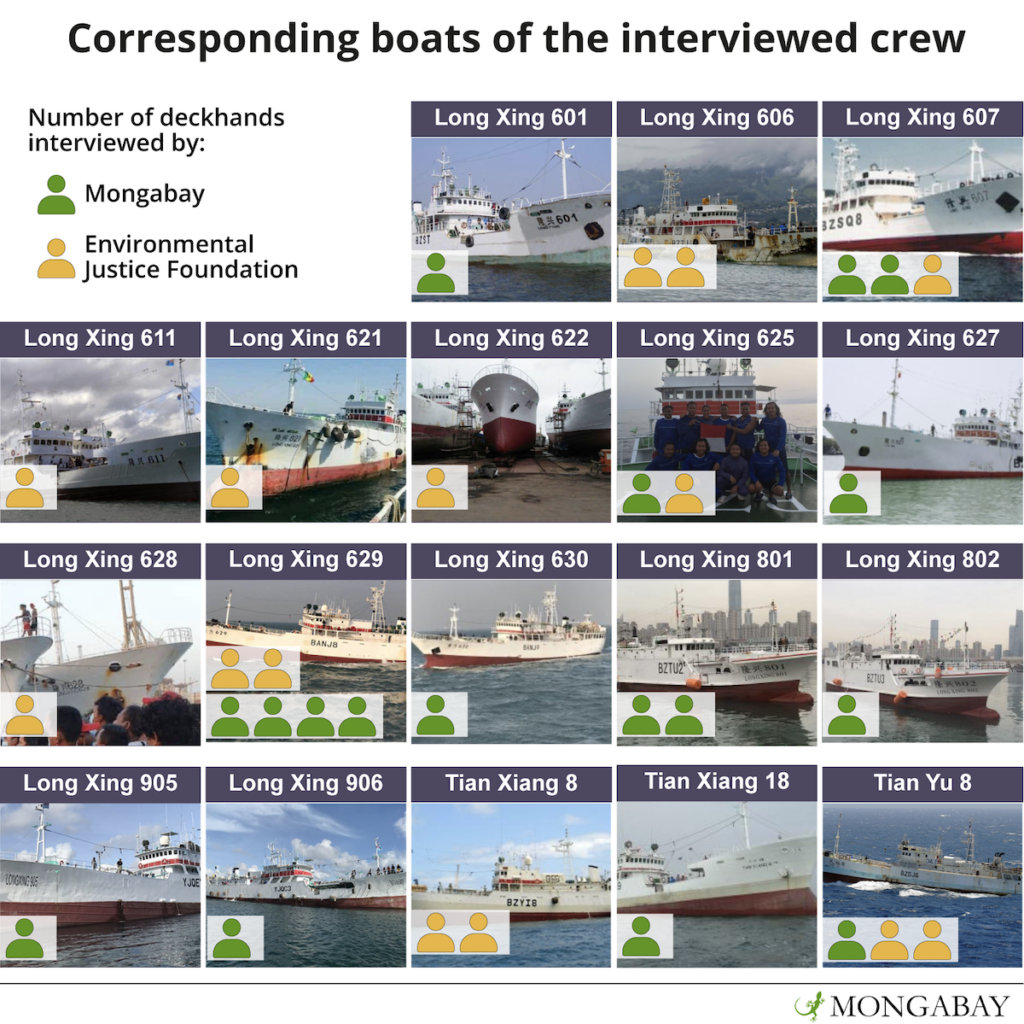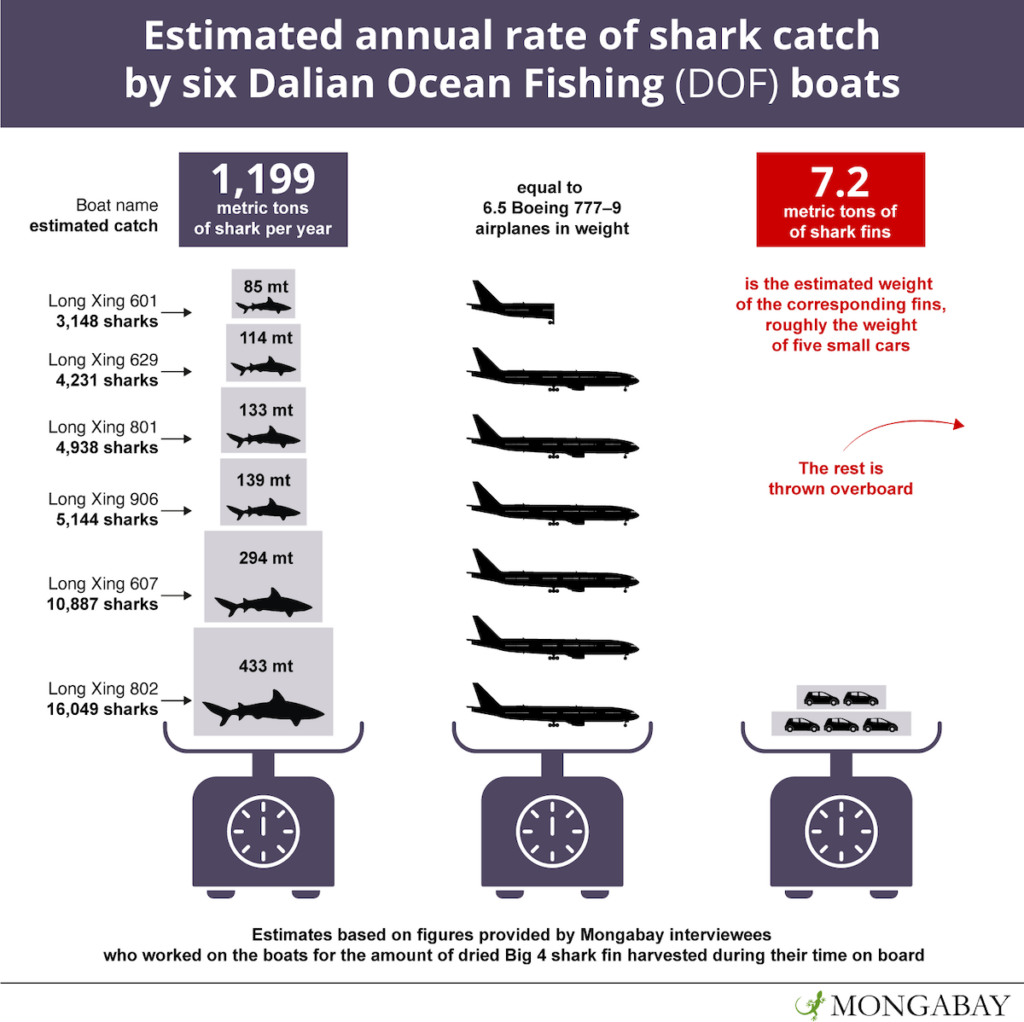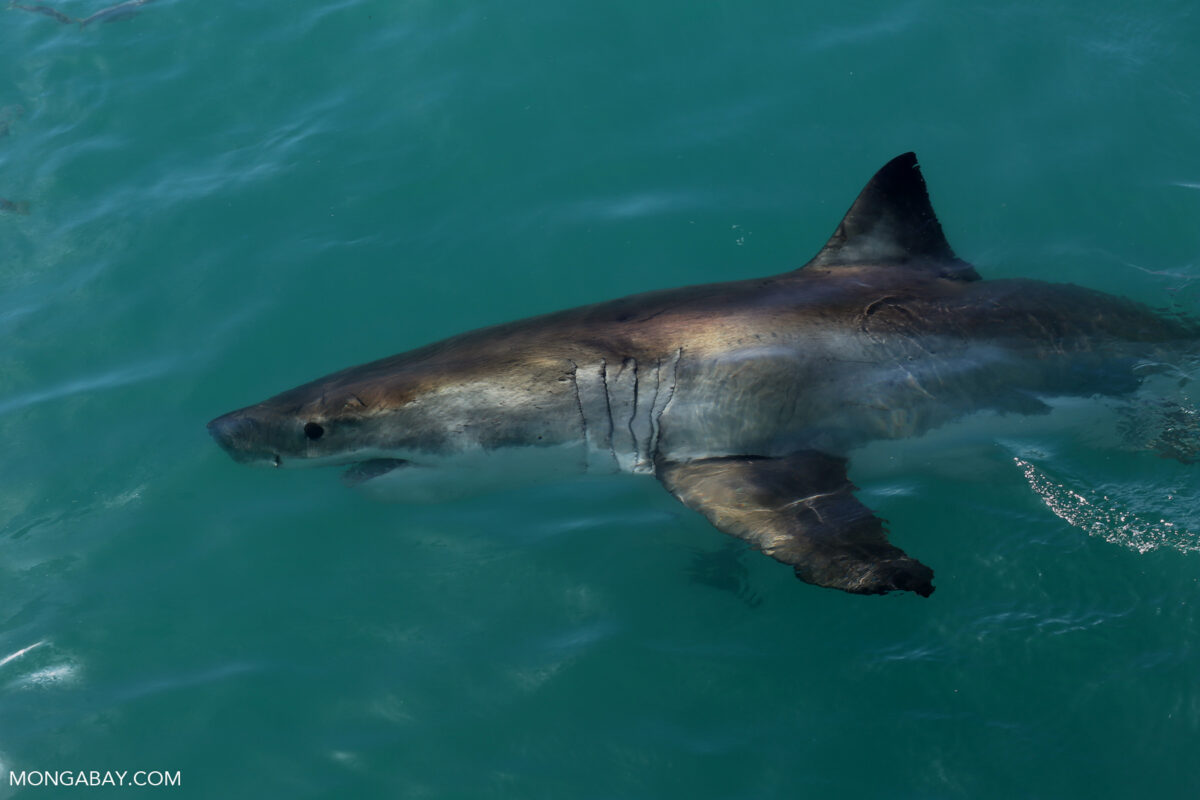The other day, I was asked about the real-world impact of investigative reporting in the context of ocean issues.
One of my favorite examples is a series of stories we published over a three-year period about Dalian Ocean Fishing, one of China’s largest tuna companies. This reporting underscores the serendipity involved in chasing a story and the unexpected ways a story can contribute to meaningful impact.
The initial focus of our investigation centered on abusive labor practices aboard Dalian Ocean Fishing vessels. In summary, workers from Southeast Asia, who applied for jobs as deckhands, found themselves trapped at sea under extremely poor and often abusive conditions. Several Indonesian workers died, and many experienced long-term negative health impacts from their time at sea on these vessels.
To do this investigation, Mongabay collaborated with Tansa and the Environmental Reporting Collective, conducting firsthand interviews with workers and thoroughly examining various records. The reporting team also utilized interviews conducted by the Environmental Justice Foundation with 11 workers from six of Dalian Ocean Fishing’s ships.

The investigation made significant waves: The story was widely republished and translated into multiple languages. It went on to win the Excellence in Investigative Reporting award from the Society of Publishers in Asia (SOPA). In 2021, the U.S. banned imports of tuna, swordfish, and other products from Dalian Ocean Fishing at U.S. ports of entry.
However, perhaps even more significant repercussions emerged from a follow-up investigation.
Through interviews with deckhands, we discovered that Dalian Ocean Fishing was covertly conducting a massive illegal shark-finning operation.
Dalian Ocean Fishing had used banned gear to deliberately catch an estimated 31,000 sharks, including critically endangered species, in the western Pacific Ocean in 2019 alone. This figure exceeds the reported catch for China’s entire longline fleet in the same period and region.

Following the publication of this second story, the U.S. Treasury Department sanctioned Dalian Ocean Fishing. The announcement cited exclusive data Mongabay gathered during our extensive investigative process. Consequently, Dalian Ocean Fishing’s parent company, Pingtan Marine Enterprise, was delisted from NASDAQ, significantly hindering its ability to raise capital for expanding operations.
Subsequently, the Western and Central Pacific Fisheries Commission banned the simultaneous use of shark lines and wire leaders.
The shark-finning investigation earned multiple awards. Phil Jacobson, Mongabay’s senior reporter on the project, was selected by the Pulitzer Center as a fellow to expand the investigation into shark trafficking on a global scale.
This case exemplifies the power of data and investigative journalism in uncovering hidden truths and contributing to real-world change. It underscores how diligent reporting and the effective use of data can help foster significant environmental policy shifts and legal actions, demonstrating the vital role of journalism in promoting transparency and accountability.

